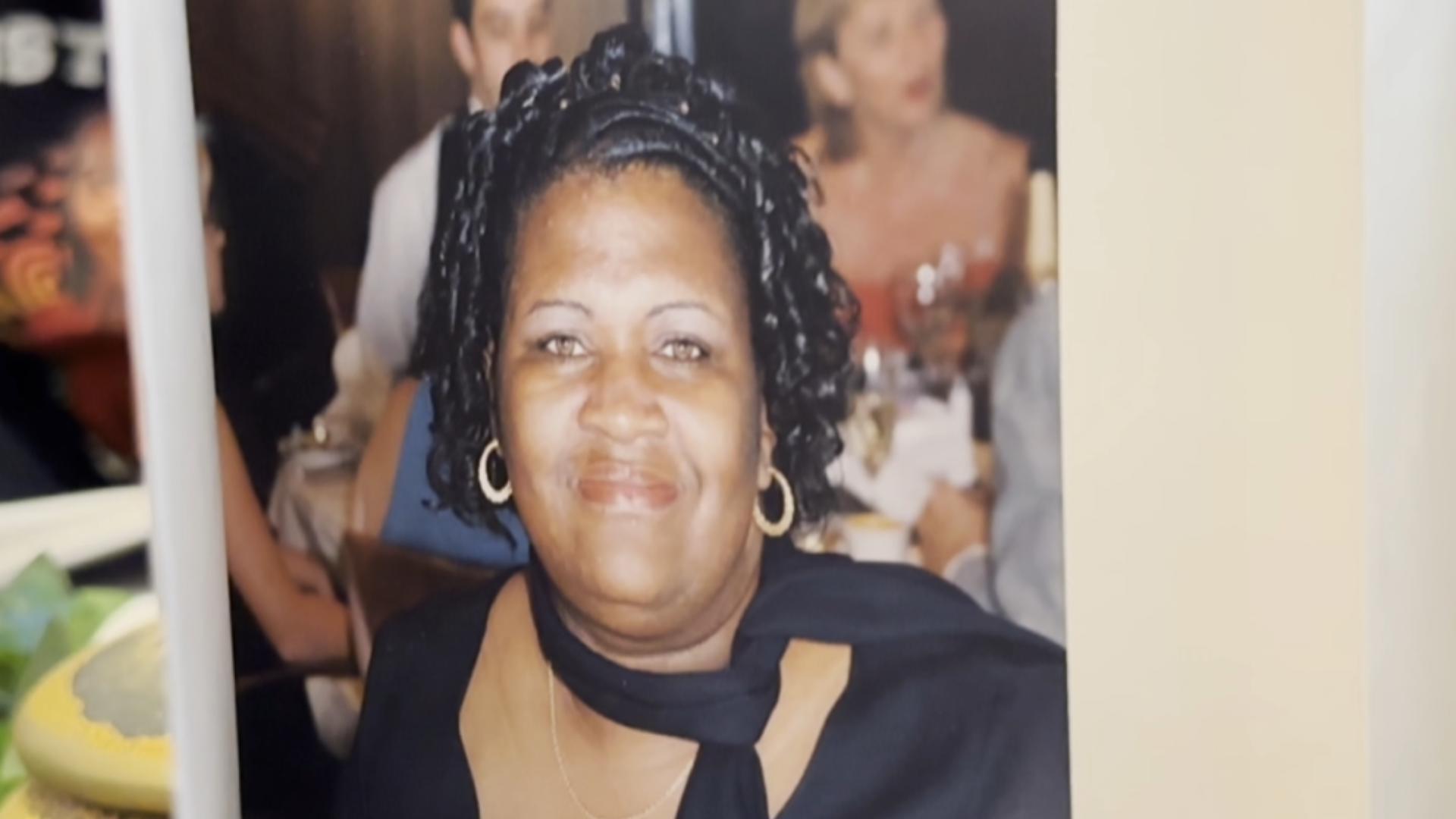BUTLER, Ga. — Before Frederick Dean died, his life looked pretty good from the outside.
Constance and Frederick Dean of Butler, GA lived in the home they built together on Railroad Street when they married in 2002.
Fredrick, who also went by "Dean," was a former corrections officer and deacon at New Pleasant Grove Baptist Church.
Constance was a kindergarten teacher at Taylor County Primary School just months away from retirement.
Their family says they both volunteered at their church, stayed active in the community and made post-retirement vacation plans for May 2018.
But then, one day, it all changed.
On the night of Sept. 12, 2017, Constance's family says she was making rounds delivering dinner plates to loved ones as Taylor County recovered from Hurricane Irma.
While she was out, she got a strange text from her husband.

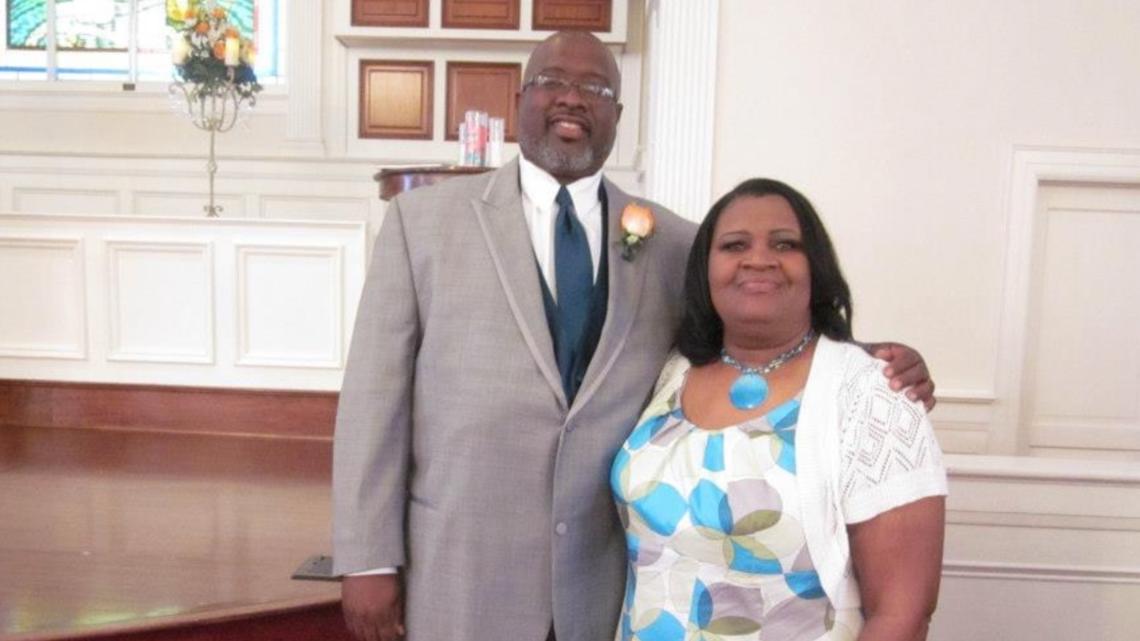
"It said, 'Don't come back to the house, I'm sorry if I ever did anything that hurt you,'" District Attorney Don Kelly said.
Constance says she returned home to find Frederick bleeding on the steps to the second floor.
Her family says she called 911 and tried to give her wounded husband CPR, but Frederick died at their home.
Kelly, who serves as the District Attorney for the Chattahoochee Judicial Circuit, said the Taylor County Sheriff's Office called in the GBI to take over the crime scene that evening.
"Because of the text she received, we just believed it was a suicide," Dean's sister Magnolia Walker said. "They took down the crime scene tape... After the funeral, we started trying to get back on with our lives."
An autopsy, however, ruled that Frederick's four gunshot wounds were not self-inflicted.
Kelly says suicides involving multiple gunshots are rare.

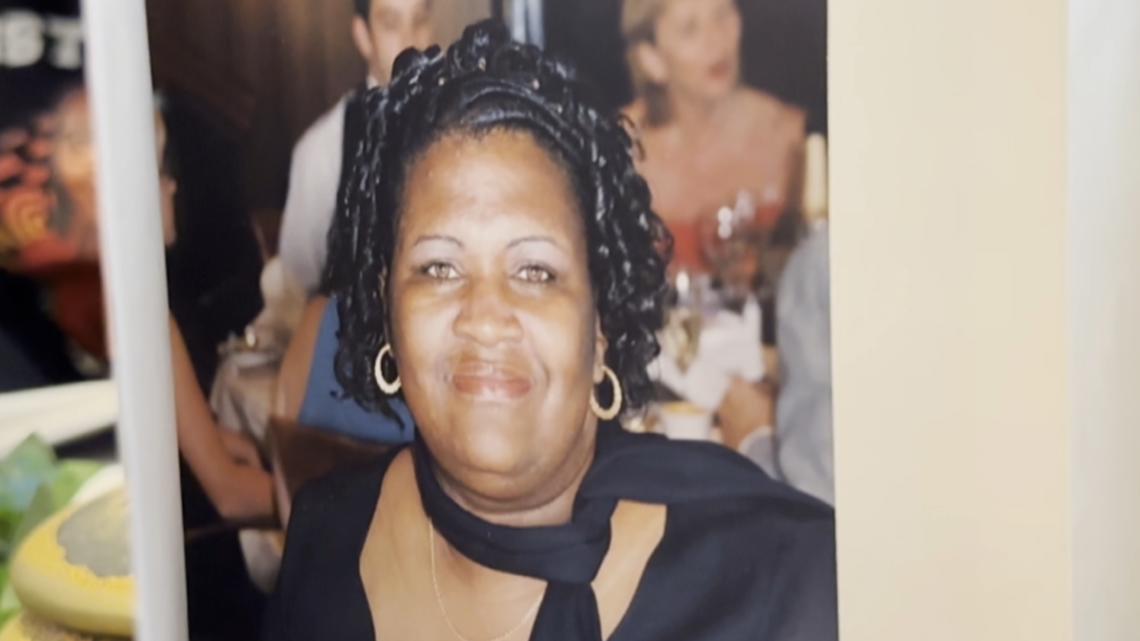
"The defense was not that someone else did it, and the reason that that becomes important is the nature of the wounds in the case. Multiple gunshots is a very small percentage of suicides. Where there are multiple [gunshots], it's almost always two — not four," Kelly said.
Because of that, they say the case was suspicious.
"It would be the most unusual suicide we've ever had," Kelly said. "So you know that that Mr. Dean would have shot himself four times, never put the gun to his body and one time missed so badly, shot himself through the arm."
Investigators called Frederick's death a homicide.

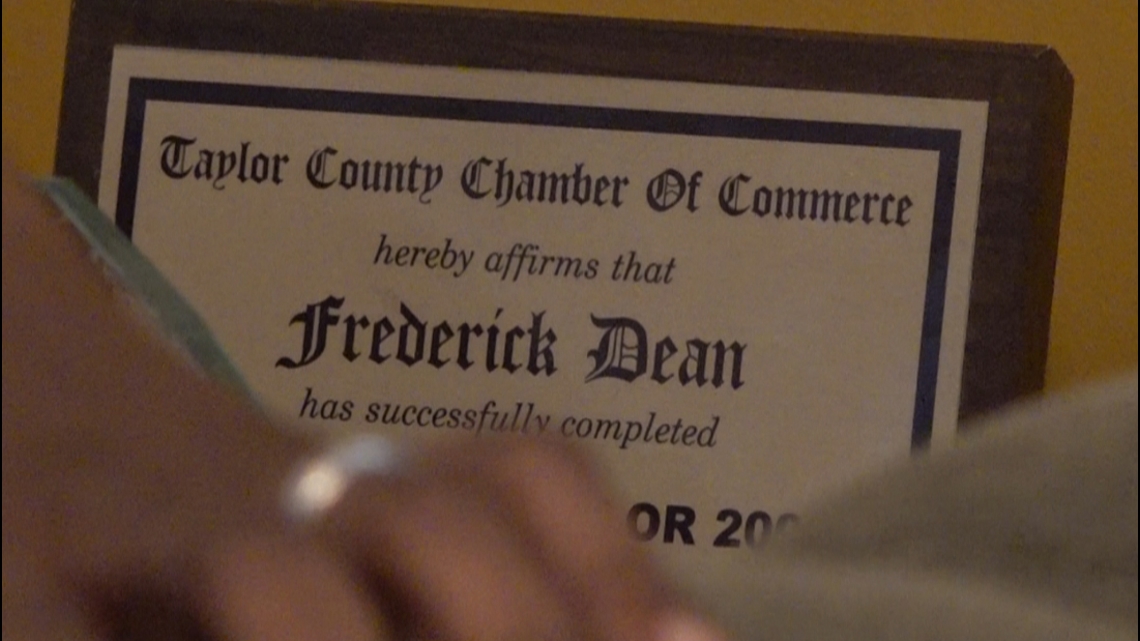
GBI agents arrested Constance Dean on Oct. 6, 2017 and charged her with malice murder, felony murder, aggravated assault, aggravated battery and possession of a firearm during the commission of a felony.
Then, years later, a Taylor County jury convicted her in April 2024.
But according to Constance's family and her legal team, they believed the case just didn't add up.
They say one of the jurors may have been less than impartial, which they say violated her constitutional rights. Because of that, they are calling for a retrial.
Was there a motive?
The underlying question to the case: Why would Constance Dean shoot her husband?
Kelly confirms that motive does not have to be proven in the state of Georgia, so it is not an element of the crime of murder, therefore not an element of this case.
According to Georgia Code 16-2-6:
A person will not be presumed to act with criminal intention but the trier of facts may find such intention upon consideration of the words, conduct, demeanor, motive, and all other circumstances connected with the act for which the accused is prosecuted.
"We never really knew what her motive was," Kelly said. "What we knew was when the police showed up, there were two people locked inside of a house, there was a gun inside the house, one of the people had been shot four times, and the other had not been shot, so it kind of eliminated all other suspects."
Overlooked evidence?
Constance's family says the jury didn't consider all the evidence, especially since the only DNA found on the gun was Frederick Dean's.
"We feel as a family, that every step of the way, the people who are supposed to be seeking the truth or seeking to validate their own egos or their own conclusions," Dean's niece, Ashleigh Scott said. "They were not seeking the truth in this case."
Constance's attorney also argued that Frederick's wounds did not match the prosecutor's story. Prosecutors argued that Constance shot him from the bottom of the steps.
"It has to be beyond a reasonable doubt. And it's so much doubt threaded through this, through the entire trial," Scott said.
But a new development has since come to light — involving a juror.
Constance's attorney Dennis Schieb published an open letter to the jury after the verdict.
Scheib says someone told him they heard a juror admit that they knew all about the case before the trial and already made up their mind.
The juror reportedly told a co-worker that she knew the details of the case before it went to trial.

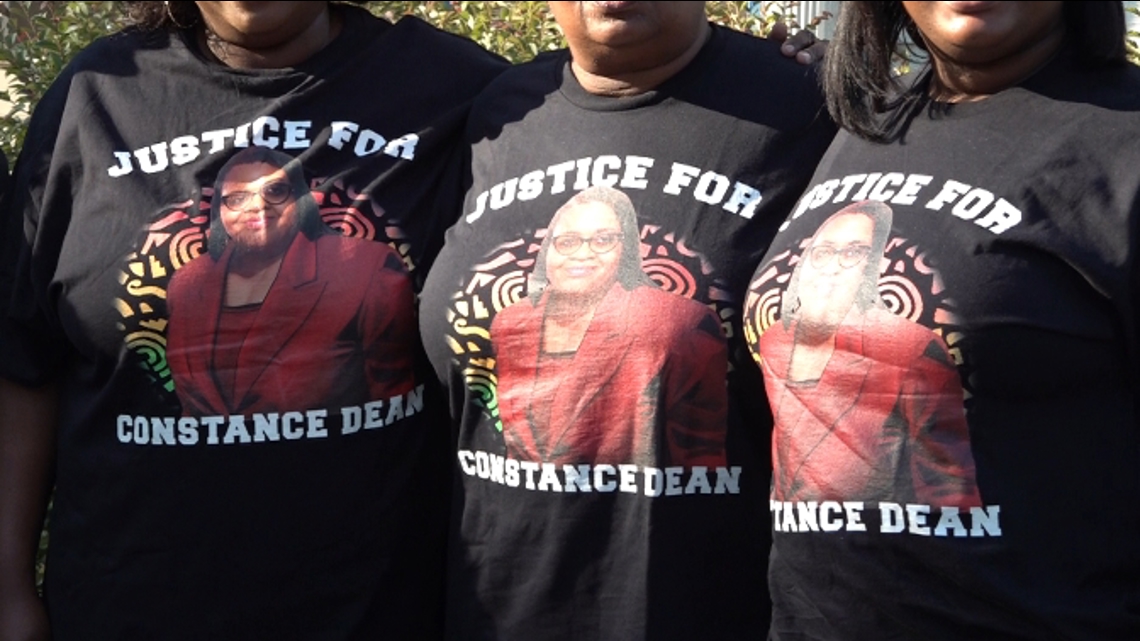
"Brittany had verbalized to her. She, Britney, already had her mind made up before the court case even started, because she knew so many of law enforcement personnel and first responders on the scene," Scheib said.
Jurors are supposed to have essentially no knowledge of the case prior to going to trial since what happens in the courtroom is supposed to be the only evidence jurors consider.
But Kelly says there are very limited circumstances where the judge revisits a case.
"Usually that involves either communication during the time the jury is considering and hearing the case," Kelly said. "The only question is whether Mr. Sheib can call the juror as a witness in the motion for new trial."
After a hearing scheduled for Oct. 15 at the Taylor County Courthouse, the judge will decide whether to order a retrial and whether the juror should be called to testify.
"If a juror already has their mind made up, then she did not receive a fair trial," Dean's sister Deborah Williams said. "That's why we'll fight it."

